Ahoy there!
Our focus book has been ‘The Night Pirates’ by Peter Harris. On Monday, we found a note at the back of the book. The note said:
Look carefully outside and you will find…
We looked outside and found a bottle buried in our sandpit with a letter inside. 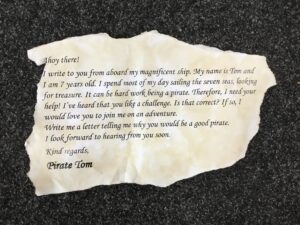
We talked about the skills/qualities we would need to join Tom on an adventure. Here are some of the skills/qualities that the children came up with:
- brave
- good listener
- strong
- clever
- perseverance
- quick
- sneaky
We then had a go at writing our letters to Tom. We talked about using ‘Dear’ or ‘To’ at the beginning of our letters.
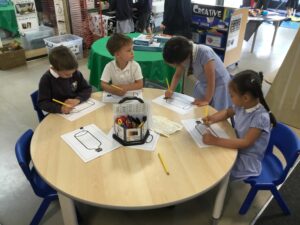
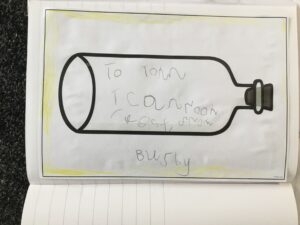
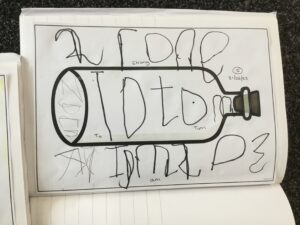
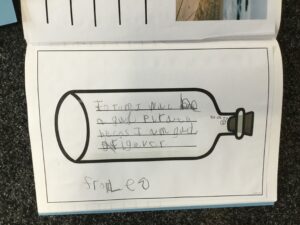
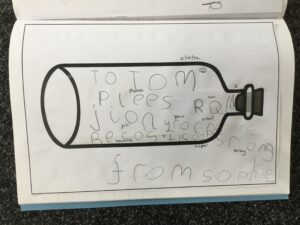

We’ve also been super busy completing this week’s chilli challenges.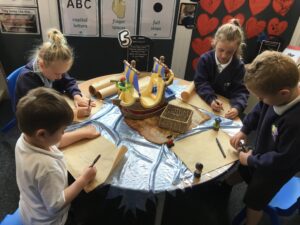
We created our own treasure maps.
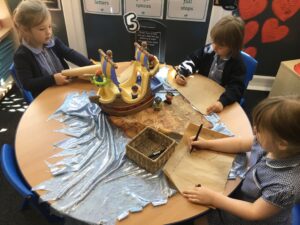
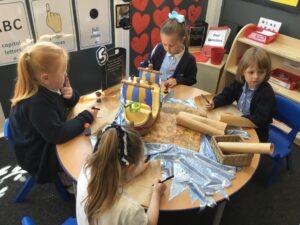
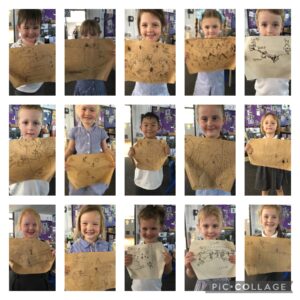
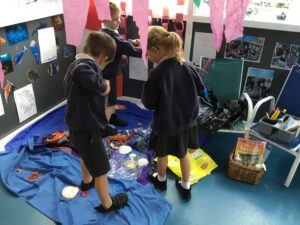
We cleaned the ocean of plastic to help look after our sea creatures.
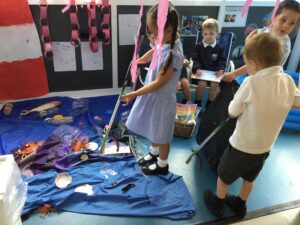
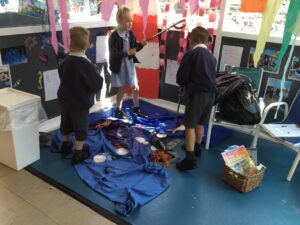
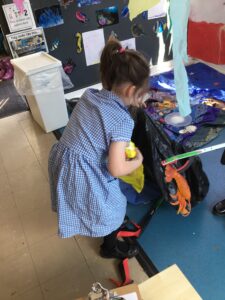
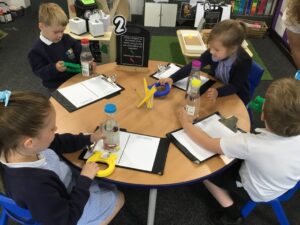
We investigated magnetic and non-magnetic materials.
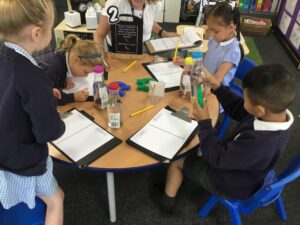
In maths, we have deepened our understanding of the counting system and recapped some key skills:
- tagging each object when counting groups of objects
- knowing number names and their order
- knowing that the last number counted gives us the total in the set
- counting body movements
- using different strategies to keep track of we’ve counted and not counted
- counting beyond 20
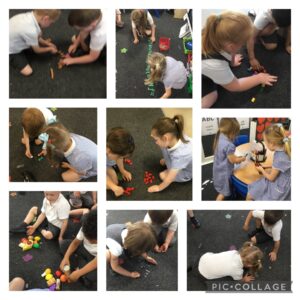
Every morning, we write a sentence about a picture. We’re super proud of our writing skills!
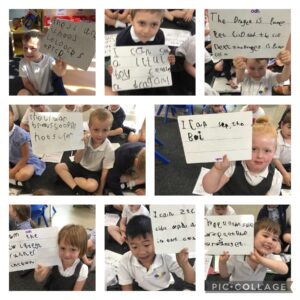
Thank you!
Finally, thank you to all the parents/carers that came to one of our learning journey drop ins. It was lovely to welcome you all into the classroom. We hope you enjoyed looking through your child’s books and talking to your child about everything they have enjoyed/achieved during their first year at school.
Home-Link Challenge
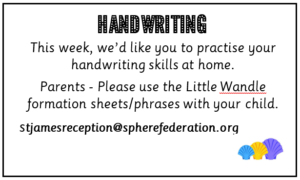
This week’s message (Friday 24 June 2022)
Thanks to everyone who responded to this year’s annual survey. We’ll spend the next few weeks reviewing the responses and building in some action points to our School Improvement Plan.
This week’s message comes from Miss Beatson, who writes about our Junior Leadership Team…
This year, the JLT have had a busy time taking on various responsibilities in school. Here are a few highlights:
24 June 2022
This week, we have been reminding ourselves how to use apostrophes for contractions.
Use the words below and use their contracted forms in a sentence.
- I am – I’m
- do not – don’t
- I will – I’ll
- did not – didn’t
- is not – isn’t
- cannot – can’t
- should not – shouldn’t
- was not – wasn’t
24 June 2022
During this week’s Talk Time, you’ll explore an important moral dilemma.
Shops should try to sell clothes as cheaply as possible.
When discussing the statement, there are a number of factors to take into consideration. Your conversations at home may begin by attempting to answer the following questions:
- Who would benefit from clothes being sold as cheaply as possible?
- Bear in mind that not everyone shares the same level of wealth.
- How would this impact on the amount of clothes people own?
- Would people buy more clothes than they actually need?
- How would lower prices impact on the shops themselves?
- If more clothes are needed in shops, how would that impact on the manufacturers?
- in terms of issues such as workload and pay
The following R2s will help your child to reflect on the discussion points:
- What are the reasons for (the pros) selling clothes as cheaply as possible?
- What are the reasons against (the cons) doing so?
- Reach a conclusion – Do you take one particular side or is there a compromise that could satisfy everyone?
Science – Animals, including humans
Today, the children have enjoyed looking at some tadpoles and frogs that were brought in by a child who has a pond in their garden. We talked about the life cycle of a frog and how there were 6 different stages.
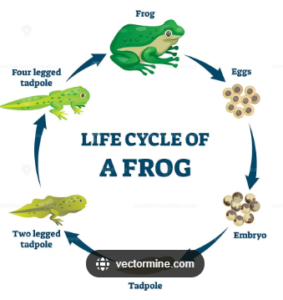
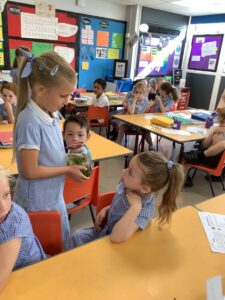
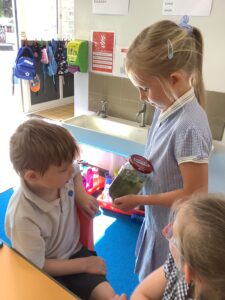
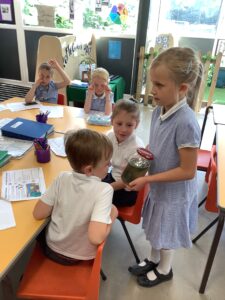

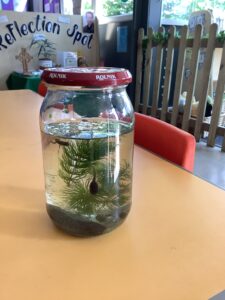
In our Science topic this half term, we have been looking at different animals and classifying them. The children knew that a frog is an amphibian. Can they tell you any other facts about amphibians?
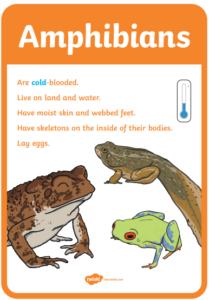
After we looked at what different animals ate and decided if they were herbivores, carnivores or omnivores.
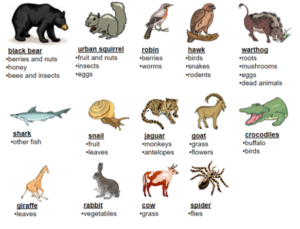
23 June 2022
Year 1: grander grandest fresher freshest quicker quickest
Year 2: metal pedal capital hospital animal pencil fossil nostril many again
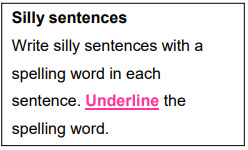
Harewood House
Today, the children enjoyed a day out at Harewood House.
In the morning, we all loved meeting the famous Humboldt Penguins in their sanctuary. The classes learnt about how the penguins have adapted to their environment and what their diet consists of.
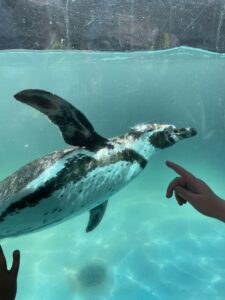
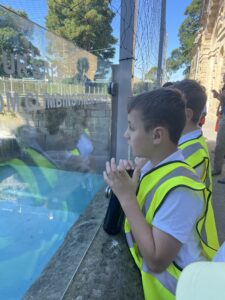
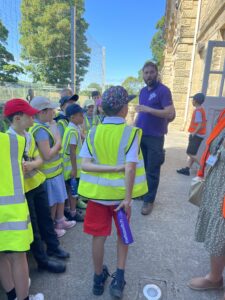
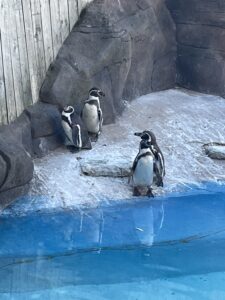
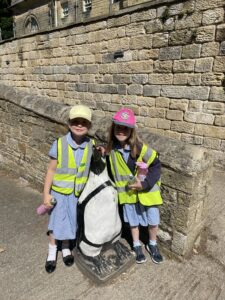
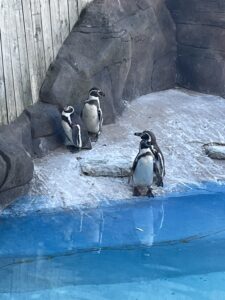
Following this, we strolled around the bird garden and found out lots of fascinating facts about the native birds of Harewood.
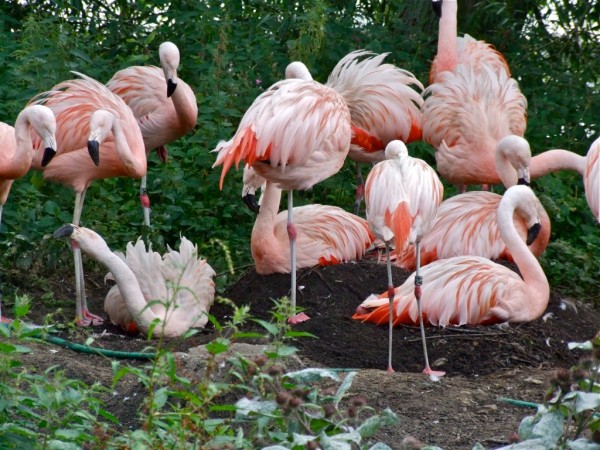


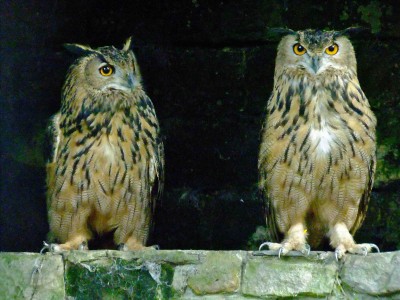
Ask your child about these birds. What can they remember?
We were amazed by some of the questions asked by the children and we also had a penguin expert among us!
Why are flamingos pink?
How long do penguins live?
What do parrots eat?
Are any of the birds dangerous?
How did these birds end up at Harewood House?
Before lunch, we took part in a penguin themed art activity.
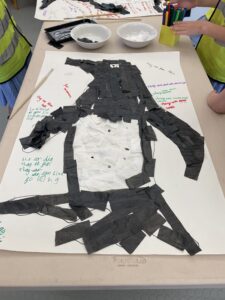
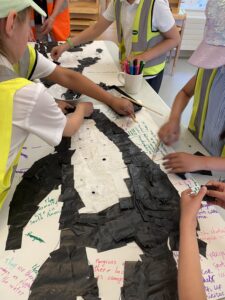
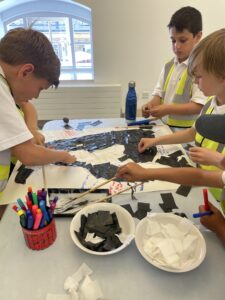
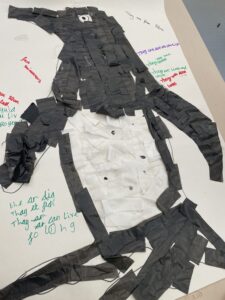
The children spent the afternoon (in the shade) sketching the house and the gardens.
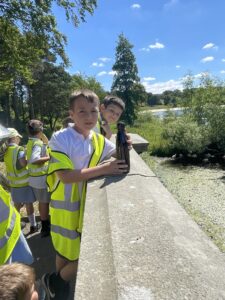
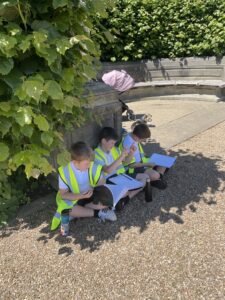
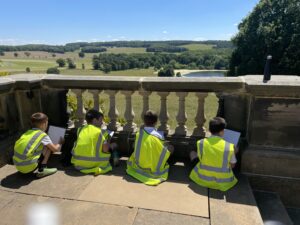
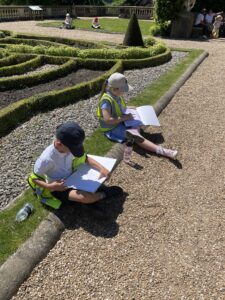
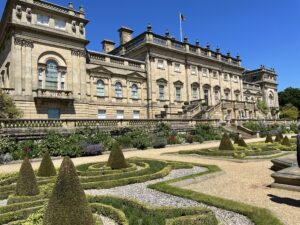
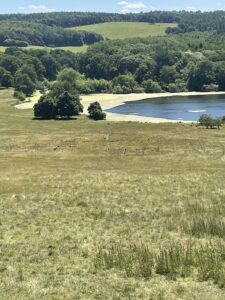
To round our super day off, the children spent time exploring in the adventure playground.
A hot, good day was had by all!
Potato picking
Mrs Small, Mr Atkins and some children have been busy tidying up our garden. They came across lots of potatoes that were planted last year. So many potatoes were collected that we used them to make a potato salad which was made available on the salad bar at lunchtime for everyone- delicious!
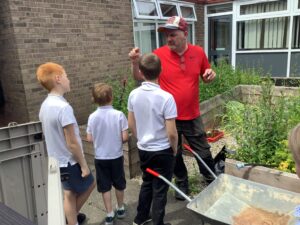
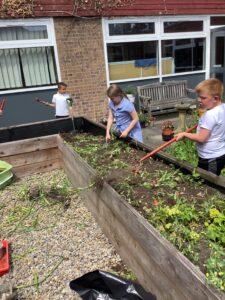
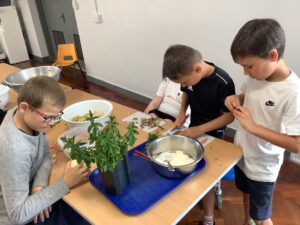
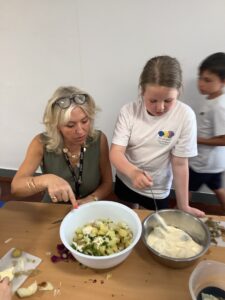
Living and Learning: Friendships
We have been thinking about friendship. Why are friendships important and what makes a good friend?
We discussed that it is likely most people will have different
types of friends—some will be ‘close’ friends (or family) and others might be ‘acquaintances’ or people we know…but less well.
After suggesting who our friends are, we then thought very carefully about ‘online friends’. Are these people really your friends?
No, they are strangers.
You can’t trust them.
They could be anywhere in the world.
This led us to a conversation about the safety rules when having contact with someone online and the importance of talking to a trusted adult if you are worried about something you have read or seen online.
Did you know that most social media and gaming sites have a minimum age of 13?
Share these questions with you child at home?
Name three qualities of a good friend?
How are you a good friend?
Is it ok to fall out?
Are people we meet online, friends?
What would you do if you felt upset about a friendship?
Read the scenario below. What advice would you give Logan? 
Hey, I hope you can help me with this problem. I had some really great mates who I played football with at school and in the park. We always used to cheer each other on but recently I’ve noticed they don’t seem to want to include me in their teams. Yesterday, they even said I should just be ‘sub’ on the side-lines and after the game they didn’t really talk to me. I thought I was getting better at football and that it didn’t really matter anyway. Alex
is trying out for the school team and Clare and Sharma think they are the best. I feel really fed up and left out. Should I just give up on football and our friendship?
Logan
This week’s bible story
Adam and Eve: Genesis 2.15—3.14
Do you know the names of the very first people in the Bible: Adam and Eve. In Hebrew (the language the story was written in) names tell you about who the person is, what they’re like. The names Adam and Eve mean ‘the first people ever’.
In the story God made a special garden for Adam and Eve to live in, and we know from the Bible that it was set in modern day Iran, next to Iraq in the Middle East.
Adam and Eve had been told that they could eat anything they wanted, except the tree that grew in the middle of the garden, which was called ‘the tree of the knowledge of good and evil’. What do you think that name means?
Read the story of Adam and Eve
What do you do when you know you’ve done something wrong? What is the best thing to do when you’ve done something wrong?
In the story, God sent Adam and Eve away, out of the lovely garden, and they learned to be farmers, to grow their own food, and to work on the land.
But what might have happened if they’d been honest and owned up (’fessed up!); if they’d taken responsibility for their actions instead of blaming someone else? We don’t know. Perhaps we’d still all live in that garden, not having to work …
But this story is still told as an example of how, when we aren’t honest, it affects many more people than just us. We don’t know what might have happened in the story if Adam and Eve had been honest. But we can be honest about ourselves, and then we know that whatever we’ve done, it’s easier to make it right again if we take the blame, apologize and acknowledge our part.
Reflection
Think for a few moments about the story of Adam and Eve:
how they did what they knew was wrong;
how they blamed someone else for what they’d done;
and how often we do that too.
Prayer
Dear God,
Help us to be honest when we do something wrong.
Help us not to blame other people, but acknowledge our mistakes,
and apologize and so learn and move on.
Amen.